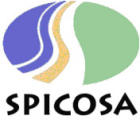
| PROJECT NAME | Science and Policy Integration for COastal System Assessment |
| ACRONYM | SPICOSA |
| STUDY REGION | - |
| PRINCIPAL INVESTIGATOR | Dennis Bailly |
| DURATION | February 1, 2007 - January 31, 2011 |
| PROJECT WEBSITE | Link to project website |
| LOICZ PROJECT DATABASE | Click here for more project information |
| PROJECT DESCRIPTION |
|
Spicosa´s overall aim is to develop a self-evolving, holistic research approach and support tools for the assessment of policy options for sustainable management through a balanced consideration of the ecological, social and economic aspects of Coastal Zone Systems (Integrated Coastal Zone Management).
Achieving this objective will require a
restructuring of the science and methodology needed to understand and to
quantify the response of the coastal ecosystems, together with their
consequences to their social and economic services, when these ecosystems are
subjected to changing environmental and anthropogenic conditions from local to
global. It will also demand integration through disciplinary and through
geographic, political, and social scales. We are trying to assist
The Spicosa initiative originates from the fact that coastal systems are under increasing human pressure and policy has not been able to respond properly to the resulting negative impacts on ecological, social and economic systems. As a consequence, we have realized that more innovative effort is needed to treat the coastal zone as an integral functioning system (the CZ System), to focus more on how to provide prognostic information or this integrated system, and to improve the ways in which research information about this is utilized for decision making, The Spicosa working hypothesis is that our present approach to managing our CZ resource needs a much improved, interactive link between the best interests of the natural-resource system and the society that benefits from itThe Project will not conduct a typical field program in coastal zones; instead it will test and perfect its methodology (System Approach Framework, SAF) at various sites in a limited, real-time configuration.
We have chosen eighteen Study Site
Applications (SSAs) all over
The group of Coastal Zones (CZ) selected for the SSAs includes all major impacts, has varying types of watersheds, marine environments, and has a wide range of human activities, cultural patters, and policy priorities. With the application of the SAF to each of these, we will create a significant SSA data set from which we can credibly distinguish those human activities that generate the greatest impacts and those types of CZ systems that are most vulnerable to human activity.
These applications will
also allow us to understand which policy controls can be considered as
independent of the natural characteristics of a CZ system, which controls need
to be made specific to a particular CZ, and to which policy changes are public
perceptions most sensitive. |
| THE PROJECT RELATES TO THE FOLLOWING PRIORITY TOPICS AND SCIENTIFIC THEMES |
Priority Topics: 1 - Link social and ecological systems in the coastal zone 3 - Link governance and science in coastal regions |
Scientific Themes: 5 - Towards Coastal System Sustainability by Managing Land-Ocean Interactions |





